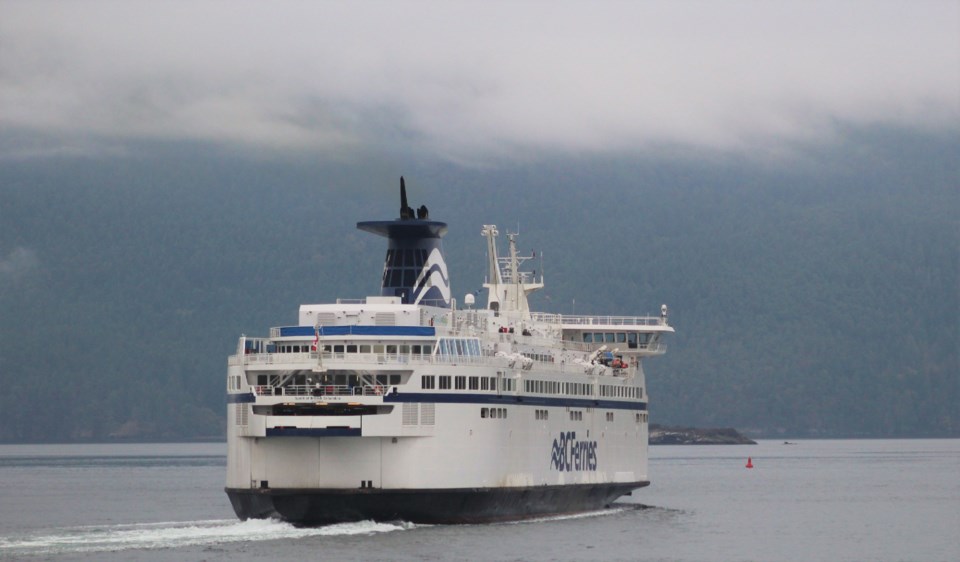Waste reduction, reducing the use of fossil fuels, minimizing air and noise emissions and better care for the family pet are among the recommendations the public has offered B.C. Ferries as the corporation plans a $1-billion vessel-replacement program.
According to B.C. Ferries, more than 11,000 customers offered their insight on what the corporation needs to keep in mind as it moves ahead with plans to replace the Queen of Alberni, Queen of New Westminster, Queen of Coquitlam, and Queen of Cowichan.
“We’re excited about how many customers participated in these conversations and the ideas we heard on how we can improve their experience while travelling with us,” said B.C. Ferries chief executive Mark Collins in a statement. “We look forward to taking the feedback we heard, along with the results from our technical studies, to inform the design requirements for these new ferries.”
The feedback B.C. Ferries recieved included requests for more space and amenities for pet owners, more diversity in fresh food choices, improved areas for bicycle storage and quiet areas away from technology and noise.
And the environmental footprint B.C. Ferries has was also top of mind, with customers said they want an overall reduction in the company’s impact on the environment.
In a statement B.C. Ferries, noted it holds environmental impact as a key priority, adding it has been an early and active participant in efforts to reduce greenhouse gas emissions underwater radiated noise.
B.C. Ferries plans to build five new large ferries to replace the four aging vessels, built between 1964 and 1981, that currently serve Vancouver Island and the Lower Mainland.
The cost of the program has been estimated at between $700 million and $1 billion.
The new ships would be built with the ability to make adjustments if travelling patterns change. For example, a car deck could be converted for passenger use if demand for on-board vehicle space drops.
The vessels, which will have similar capacity to the Spirit-class and Coastal-class vessels, will also be quieter to reduce underwater noise for killer whales, and have lower emissions.
B.C. Ferries expects to award a contract to build the new vessels next year with the expectation they could enter service in 2023, with each arriving about six months apart.
The company will also launch a second round of engagement later this year to explore thoughts on sustainability and future flexibility in more detail.
— Andrew Duffy, Times Colonist



